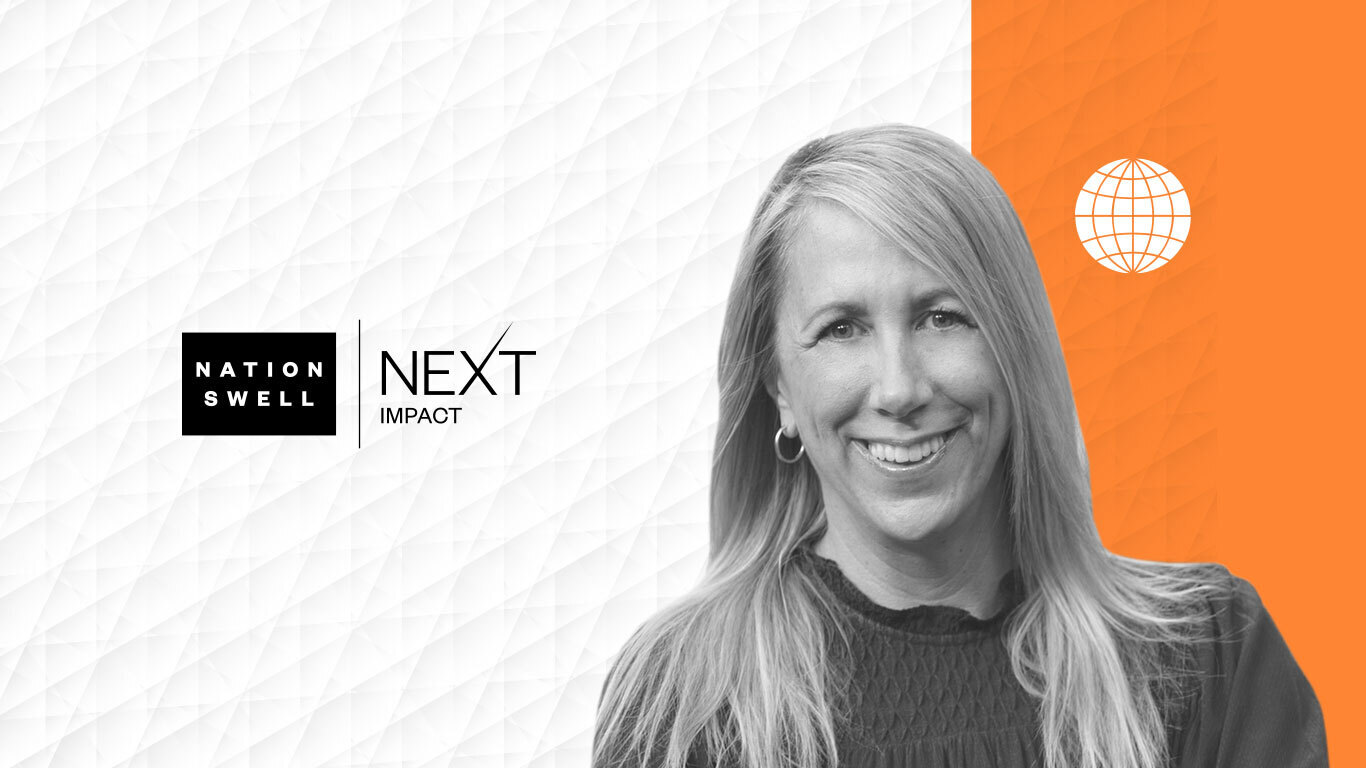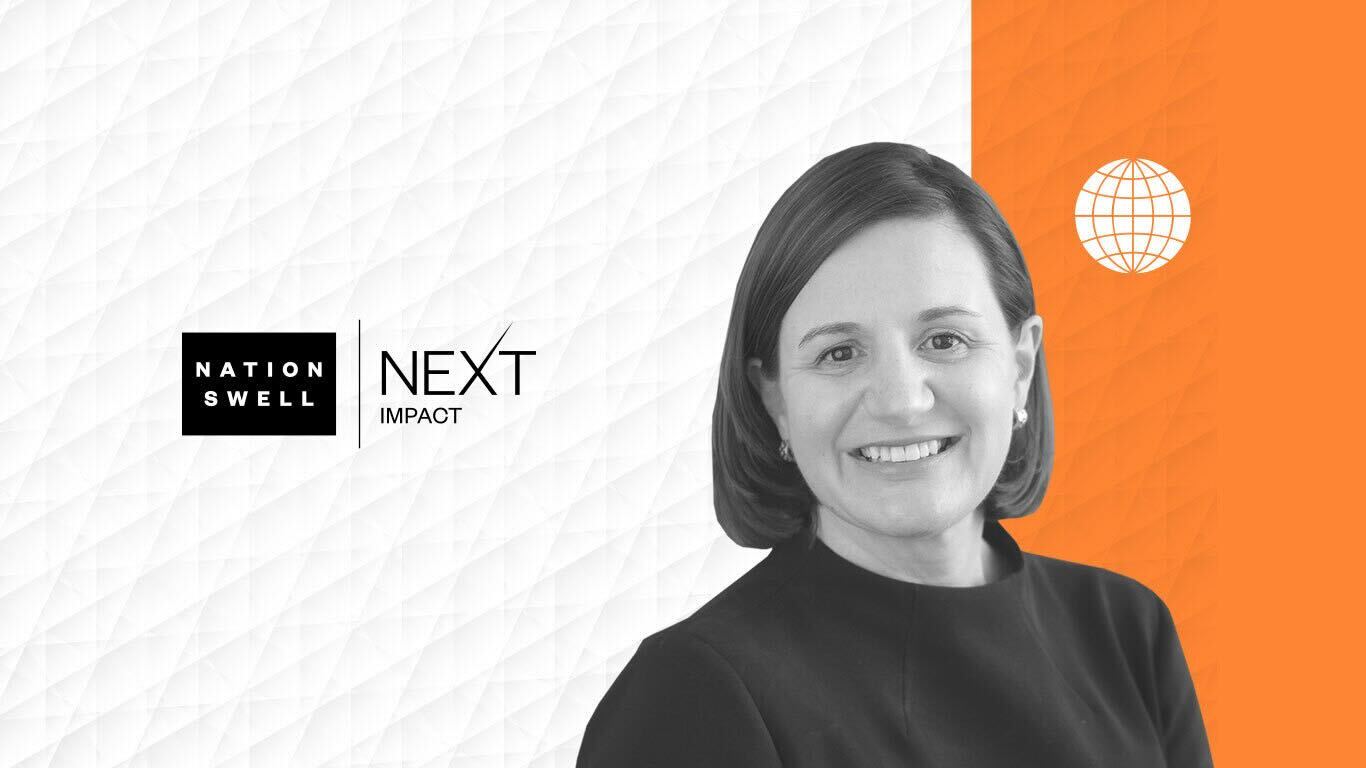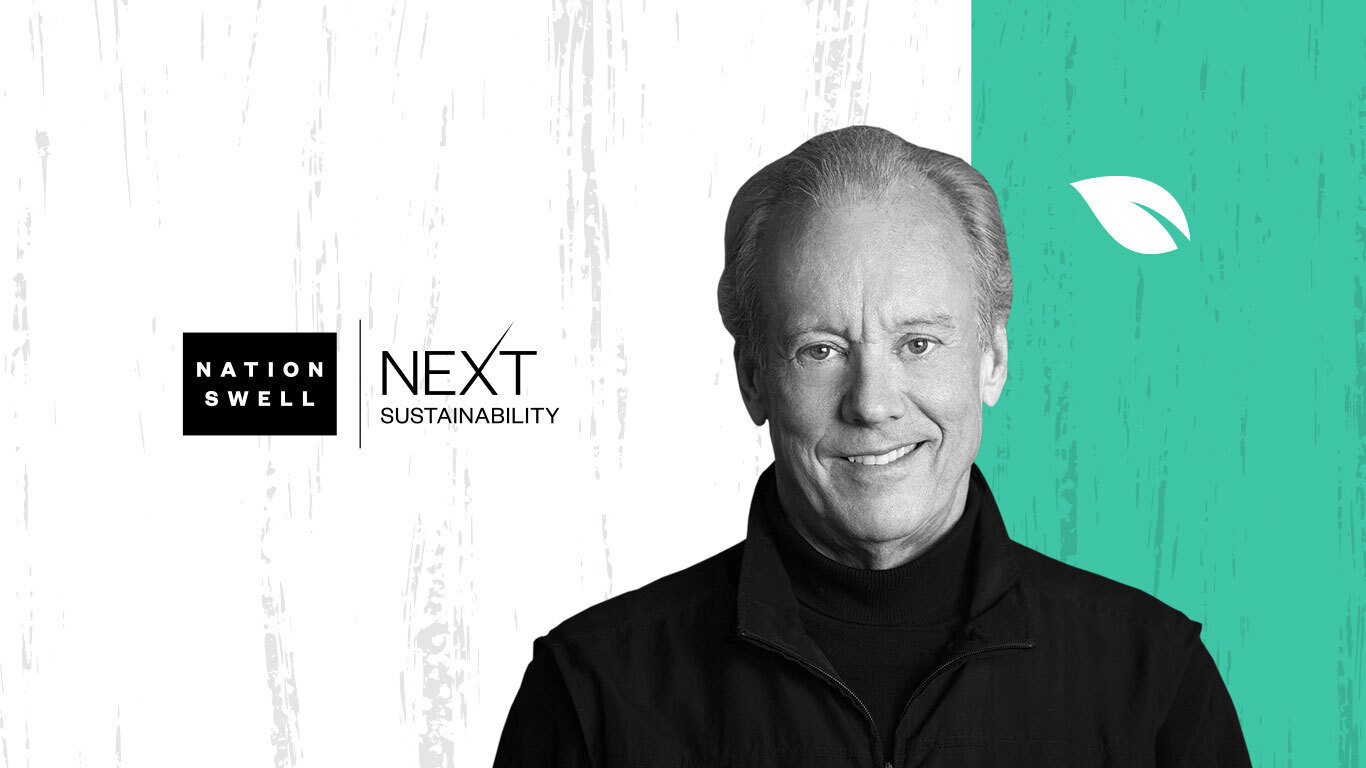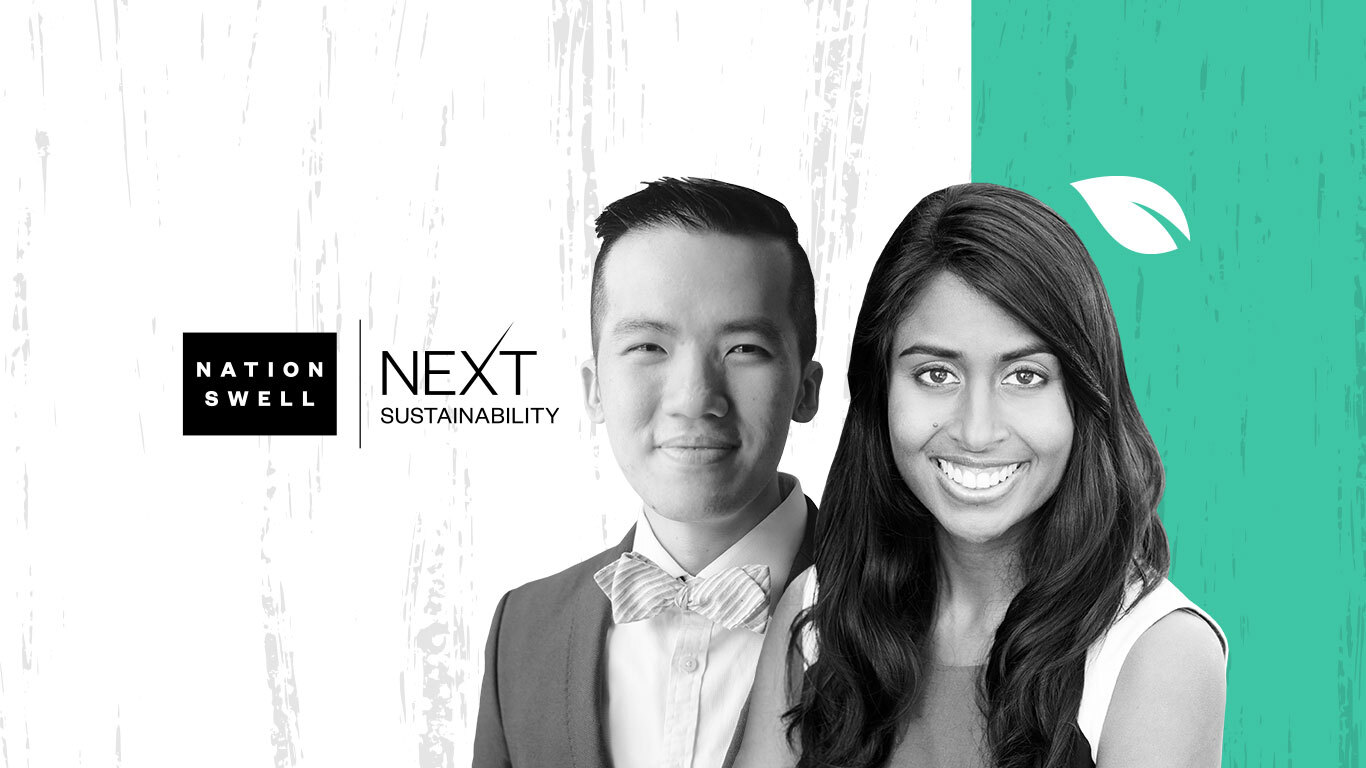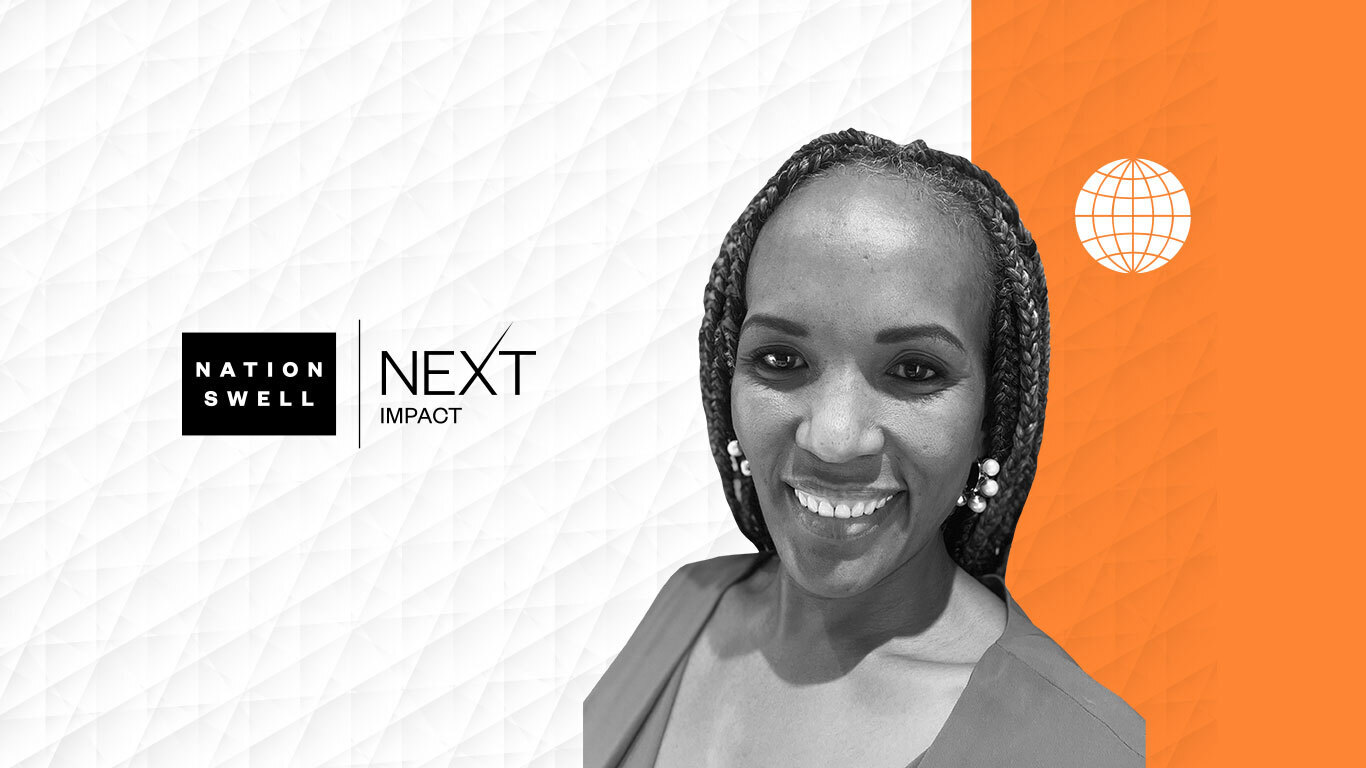At a moment of growing inequality and division, who is advancing the vanguard of economic and social progress to bolster our most vulnerable communities? Whose work is fostering the inclusive growth that ensures every individual thrives? Who will set the ambitious standards that mobilize whole industries, challenging their peers to reach new altitudes of social impact?
In 2024, Impact Next — a new editorial flagship series from NationSwell — will spotlight the standard-bearing corporate social responsibility and impact leaders, entrepreneurs, experts, and philanthropists whose catalytic work has the potential to shape the landscape of progress amid urgent need for social and economic action.
For this installment, NationSwell interviewed Meg Garlinghouse, Vice President of Social Impact at LinkedIn.
Greg Behrman, CEO and Founder, NationSwell: What brought you to this field? Was there a moment in your life that galvanized your commitment to driving bold action on social and economic progress?
Meg Garlinghouse, Vice President of Social Impact, LinkedIn: I grew up in Topeka, Kansas, in a very middle class community. I went to an average public high school, where it was very uncommon for kids to go to college out of state, but my parents were adamant that we did. They had the resources and the determination to make that happen — they drove me to Kansas City to take the SAT and they took me out of state for college visits. Their guidance and support every step of the way helped me to excel in high school and get into college.
I’ve always been hyper aware of this privilege and believe I’m ultimately a product of my circumstance because of the family I was born into. This belief and experience has fueled my motivation to help enable social and economic mobility for others.
Behrman, NationSwell: Looking back at the scope of your career, how have your thinking, your strategies, your leadership style, or your philosophies evolved over time?
Garlinghouse, LinkedIn: One of the ways my impact philosophy has evolved over the years is focusing our vision and strategy much more “up river”. This means broadening our focus to address the root causes of social issues in addition to the symptoms, and we have several initiatives underway at LinkedIn to move this work forward.
First, we work closely with our data scientists and engineers to ensure that the technology powering our platform and products is inclusive of all members of the global workforce. Second, thanks to one of my team members, Kavell Brown, we kicked off the LinkedIn Social Impact Global Root Causes Fund, which we started in Brazil and are expanding to other countries. The Fund focuses on root causes of inequality and includes a participatory process for grant-making that supports the organizations doing the direct service work.
Today my greatest conviction is making sure that LinkedIn is truly a place for everyone to find opportunity, connect with new people with diverse perspectives and learn the skills they need to be successful in the evolving workplaces. We have a responsibility to ensure that this new world of work, powered by artificial intelligence (AI), is truly building a better world of work for everyone.
Behrman, NationSwell: Which trends define the current societal and economic moment? Which fill you with optimism, which ones give you pause, and which aren’t getting enough attention?
Garlinghouse, LinkedIn: I think networks are overlooked as critical pillars of economic mobility. Networks are much more than how you get a job — they often determine whether or not you even know that there is a job available in the first place.
We can build a more equitable labor market based on skills. It’s equally important, though, to consider the critical role networks play and apply them in a way that unlocks their value — ensuring that they serve as avenues to connect people to other perspectives, individuals, and experiences.
One way we do this at LinkedIn is through our signature social impact program, LinkedIn Coaches, where LinkedIn employees connect with professionals overcoming barriers to review best practices for LinkedIn profiles, learn how to network and practice interviews, either in 1:1 sessions or group settings. This program helps to build networks through career conversations with mentors and LinkedIn platform training, and it ends up being really impactful — not just for the jobseekers, but also for employees to learn and get a sense of what job seekers are actually facing. We also encourage members to reach outside of their networks with LinkedIn’s Plus One Pledge to help level the playing field and close the network gap.
Finally, when we’re looking at access to economic opportunity, a conversation that’s now more urgent than ever is the one happening around generative AI. Innovation is happening so quickly, and I’m spending a lot of time thinking about how we are meeting this pace of change. It’s important to have strong data foundations so we can measure as we go and maintain a consistent focus on ensuring that our products and platform support all members of the global workforce, in partnership with our engineering teams. It’s also important to ensure we are making critical decisions based on an established set of principles.
Behrman, NationSwell: Can you elaborate on your specific role in spearheading social or economic progress within your organizational framework? How does your role stand out from other social or economic impact leadership functions, and what is the North Star of your leadership?
Garlinghouse, LinkedIn: By far the most important attribute in a leader is being able to identify and develop extraordinary talent. If you get the right people on the proverbial bus who have clarity on the “why?” and conviction on the “how,” then work becomes both meaningful and effective.
The other important piece of my leadership style is helping to connect people to their purpose. Linkedin’s vision is to create economic opportunity for every member of the global workforce — not just the people who were born into economic opportunity, but every member. To make this vision a reality, we really need every employee to join us on this journey to ensure that the products and features we are building are benefitting professionals of all backgrounds and experiences.
Behrman, NationSwell: Of the social or economic leaders who perform a similar function to yours at a peer organization, whose work inspires you, and whom you hold in high esteem?
Garlinghouse, LinkedIn: I deeply admire Erin (Baudo Felter, the Vice President of Social Impact and Sustainability) at Okta. She’s one of those people who got smart on issues quickly; she is impressive and has been taking bold steps to meet the moment we are in. For example, I love the work she’s doing around investing in tech executive talent for nonprofit boards.
Behrman, NationSwell: Could you recommend any insightful resources – maybe a book, report, podcast, or article that has significantly influenced your thinking?
Garlinghouse, LinkedIn: One book that has really helped to shape my thinking is From Generosity to Justice: A New Gospel of Wealth, by Darren Walker, which really challenges the reader to think about philanthropy as a tool for achieving economic, social, and political justice – and not a bandaid to cover or address the symptoms.
One of the best podcasts I’ve listened to recently is Kelly Corrigan Wonders’ conversation with David Brooks. It really has everything — leadership, how to make sense of the craziness in the world, how to think about individual responsibility.
I also think everyone needs to spend time learning about advancements in Generative AI. Henry Timms has an article in the Harvard Business Review that has really evolved how I’m thinking about it, and Fei Fei Li is another leading voice — she’s brilliant, clear, pragmatic, and humble. We’re in this moment where AI can become a force for good, but it won’t happen by chance — it will only happen by design.


